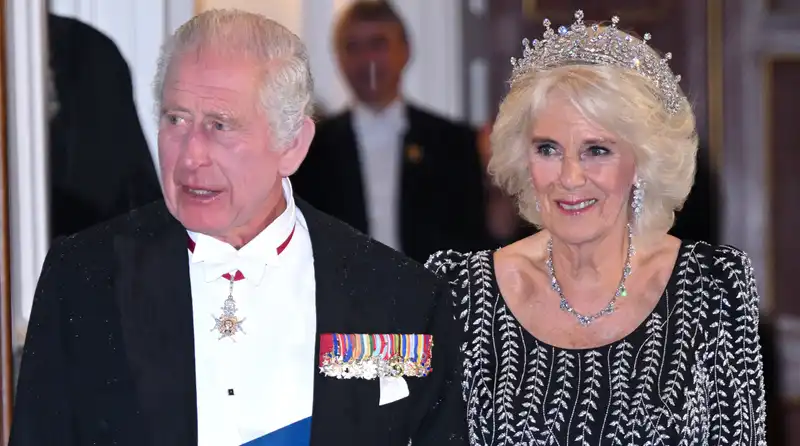
Queen Camilla's son says Prince Charles “practices what he preaches” about his diet.
Queen Camilla's son talks (pun intended) about the dietary preferences and differences between his mother and his stepfather, King Charles.
Tom Parker Bowles, writing for the Daily Mail, promotes his new book, Cooking and the Crown: Royal Recipes from Queen Victoria to King Charles III reveals the culinary differences between the royal couple, including King Charles' commitment to clean and healthy eating.
“From rare breeds of sheep and cattle to traditional varieties of plums, apples, and pears to the best British cheeses, no one knows more about food and farming than the King,” Bowles writes, describing him as a “true food hero.”
“The King practices what he preaches,” the cookbook author continues. The King has long preached the importance of sustainable agriculture, and there is no waste at the King's table.”
According to Queen Camilla's son, Prince Charles' pantry is filled with “game, beef, and lamb” and “the seasonal bounty of the royal estate,” including fruits and vegetables such as “peas, strawberries, raspberries, and chard.”
In addition to the monarch's dedication to sustainability, according to the author, Prince Charles skips lunch and instead enjoys a serious but relaxing afternoon tea instead of a midday meal.
“Tea, however, is a serious, albeit very relaxed, meal wherever it is served.
“Dinner, on the other hand, is really quite laid-back, away from the formal pomp and circumstance.
Queen Camilla's son also opens the curtain on his mother's dining preferences, writing that, unlike her husband, she enjoyed “a very light lunch,” usually consisting of “chicken soup or smoked salmon.”
While the queen and king regularly enjoy modest meals, Bowles says that state dinners and other official royal functions are as highbrow and solemn as they were at the height of the monarchy. [Kings and queens, princes, potentates, and presidents sit down to revel in the eternal power of sharing a table. Dinners may now be limited to three courses, but they remain a powerful diplomatic tool. [The menus are still written in French and sent to the king and queen for their approval. The late queen, like the king, was a stickler for detail.”

Comments